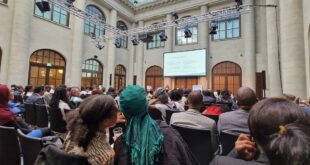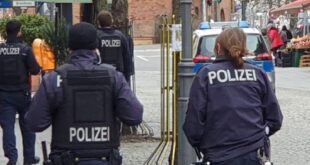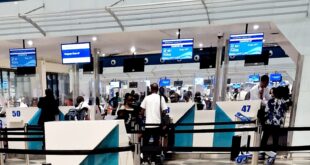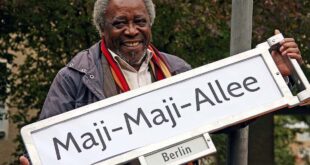On 13 September, elections for Lord Mayors, Mayors, Councillors and the Integration Councils will be held in towns and cities across the western German state of North Rhine-Westphalia. The Integration Councils are for many people with a migration background the only opportunity for political participation through elections. Many Africans are vying for seats on the Integration Councils (Integrationsrat), the only democratically legitimised organs for the representation of all immigrants in North Rhine-Westphalia, the country’s most populous state. Sola Jolaoso explains the important of the Councils, into which elections are held every five years
——
What is an Integrationsrat?
Created in 1994, Integrationsrat or Integrationsbeirat (Integration Council) – in some cities also known as Ausländerrat or Ausländerbeirat (Foreigners’ Advisory Council)- is the official representative organ of the residents of foreign origin in a city, municipality and district. To this end, the Foreigners’ Advisory Councils advise the organs of the municipality in all matters concerning foreign residents.
The main task of the Council is to represent the interests of the foreign-origin population of a municipality/city or district. Above all, it advocates for integration and equality between foreign and German residents at local level.

Functions of the Integrationsrat
According to the law establishing it, the Integration Council can advise the local authorities on all matters affecting foreigners. The Council can demand that a matter it considers as important to foreigners be presented to the Mayor or the highest official of an administrative district.
Also, the Council can participate in the political decision process at the communal level by presenting the views of the foreigners on any policy in that community.
Duties of the Integrationsrat
– Fighting against discrimination, prejudice and violence against foreigners
– Working for the improvement of the situation of immigrant children in kindergartens, schools and in places where they are learning trades
– Fighting against discrimination in the workplace
– Fighting for a just allocation of housing by the Wohnungsamt (communal housing department)
– Supporting and promoting foreigners’ voluntary associations (Verein)
– Fighting for the improvement of the welfare of refugees and asylum-seekers
– Working for better living conditions for the foreign-born elderly residents
– Working for tolerance and cultural and religious freedom

Legal provisions for the establishment of an Integrationsrat:
– Integration Council should be formed in municipalities with more than 5,000 foreign residents
– In municipalities with between 2,000 and 5,000 foreign residents, an Integration Council must be formed if at least 200 eligible voters request this by signature petition. The formation of the Integration Council is also possible without 200 signatures if the municipality decides to voluntarily establish one
– In municipalities where there are less than 2,000 foreign inhabitants, an Integration Council can be established voluntarily by the municipality
Who can contest for the Integrationsrat?
The following categories of persons can stand as candidates for the Integration Council
– Candidates can be Non-Germans and Germans
– Candidates must be at least 18 years old
– Candidates must have lived in Germany for at least one year
– Candidates must have been registered in the respective city as their main city of residence for at least three months
– Candidates must have the right to stand for election and be voted for in accordance with the electoral law (passives Wahlrecht). This means that candidates must also be qualified to vote

Who can vote at an Integrationsrat’s election?
Those entitled to vote are
– Foreigners; that is, residents holding a foreign passport
– Germans who also have another foreign nationality
– Germans who have acquired German citizenship through naturalisation
– Germans who as children of foreign parents acquired German nationality by birth in Germany
– Persons with German nationality who are entitled to vote must be entered on the electoral roll latest by the twelfth day before the election and must provide proof of eligibility to vote
– Voters must be 16 years of age on the day of the election
– Voters must have resided legally in the territory of the Federal Republic of Germany for at least one year and must have had their main residence in the municipality at least sixteen days before the election.
Members of foreign armed forces, the staff of embassies and consulates and asylum-seekers are not allowed to vote.
Sola Jolaoso
 THE AFRICAN COURIER. Reporting Africa and its Diaspora! The African Courier is an international magazine published in Germany to report on Africa and the Diaspora African experience. The first issue of the bimonthly magazine appeared on the newsstands on 15 February 1998. The African Courier is a communication forum for European-African political, economic and cultural exchanges, and a voice for Africa in Europe.
THE AFRICAN COURIER. Reporting Africa and its Diaspora! The African Courier is an international magazine published in Germany to report on Africa and the Diaspora African experience. The first issue of the bimonthly magazine appeared on the newsstands on 15 February 1998. The African Courier is a communication forum for European-African political, economic and cultural exchanges, and a voice for Africa in Europe.



































